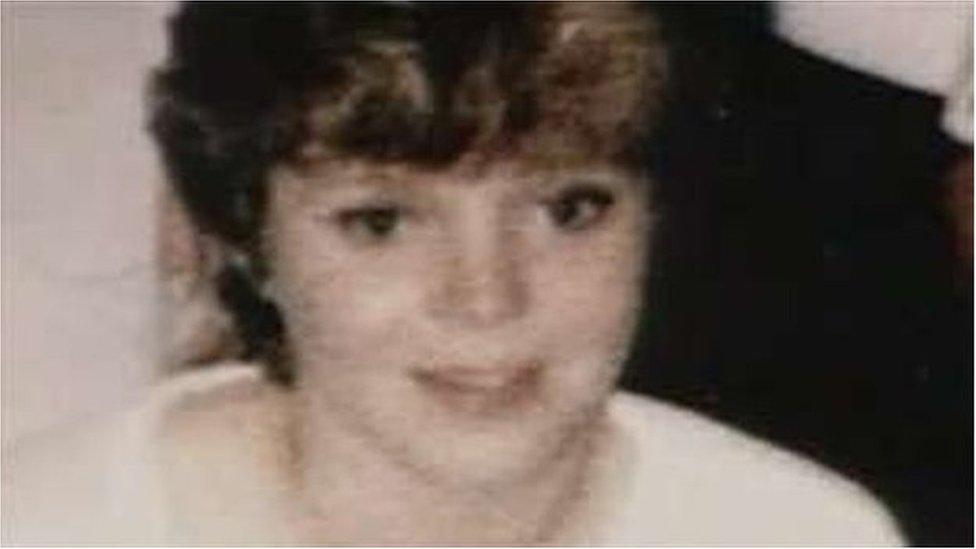Lynette White: How Cardiff murder began long legal saga
- Published
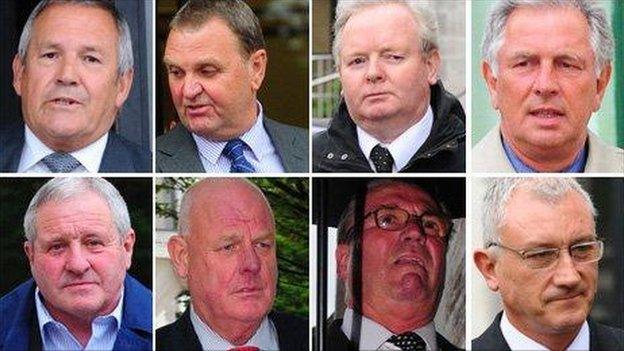
Eight former South Wales Police officers always denied conspiracy to pervert the course of justice
The collapse of the largest police corruption trial in UK criminal history appears to close the casebook on a remarkable episode spanning more than 20 years.
When the Crown Prosecution Service (CPS) offered no evidence against eight former South Wales Police officers charged with perjury over the murder of Lynette White in Cardiff's docklands in 1988, it ended a case which involved tens of millions of pounds of public money.
All the officers were involved in the original investigation into the prostitute's brutal murder in a dingy flat on Valentine's Day, 14 February, where she took her clients.
The dramatic turnaround comes five months into the trial.
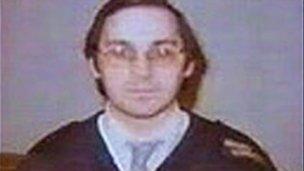
A link with a teenage boy led to the arrest of Gafoor
Former Chief Insp Graham Mouncher and Thomas Page; former Supt Richard Powell; retired Det Con John Seaford, Michael Daniels, Peter Greenwood, Paul Jennings and former Sgt Paul Stephen all denied conspiracy to pervert the course of justice.
Mr Mouncher also denied two counts of perjury.
Civilians Violet Perriam and Ian Massey also denied two counts of perjury, and they have also been acquitted.
'Sufficient evidence'
The planned second trial of a further four officers will now not go ahead next year.
The former officers went on trial last July after the Independent Police Complaints Commission (IPCC) reinvestigated the original police inquiry into Miss White's murder.
They were charged after the Special Crime Division of the CPS said, in March 2009, there was sufficient evidence to prosecute three serving officers and 10 former officers with conspiracy to pervert the course of justice.
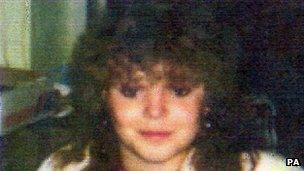
Lynette White was stabbed more than 50 times in the flat where she worked as a prostitute
But the latest development seems to bring the curtain down a series of trials which began after Ms White was stabbed more than 50 times in a flat above a betting shop on James Street in Butetown.
The discovery of her mutilated body prompted one of the biggest murder hunts ever mounted in the UK.
Five Cardiff men were originally charged with the murder. But the lengthy first trial ended when the judge died as he was summing up at Swansea Crown Court.
A second trial followed in 1990, at which two of the five - cousins John and Ronnie Actie - were acquitted.
Trace of blood
But Stephen Miller, Yusef Abdullahi and Tony Paris - who became known as the Cardiff Three - were wrongly jailed for the murder. However, it was declared a serious miscarriage of justice, and two years later they were released on appeal.
The case was reopened in June 1999 and fresh forensic evidence led police to the real killer.
A small trace of blood on the cellophane wrapper from a cigarette packet and 10 traces of the same blood underneath several layers of paint on a skirting board were found at the crime scene.
The national DNA database partly linked the blood to a teenager who was known to police but not born at the time of the murder.
That 14-year-old youngster was a relative of Jeffrey Gafoor, who admitted the murder after his trial was told he changed his mind about sex and she refused to give him back £30.
The security guard, from Llanharan in Bridgend, who is now 46, was jailed in 2003.
Gafoor gave evidence for the prosecution at the officers' trial, where he described himself as "half-crazy" and insisted he was the only man involved in the murder.
- Published1 December 2011
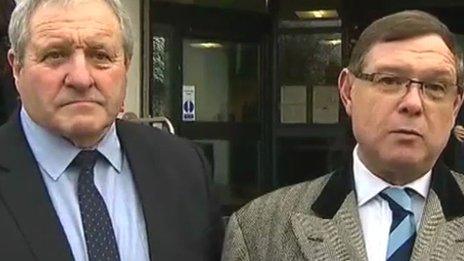
- Published14 June 2016
